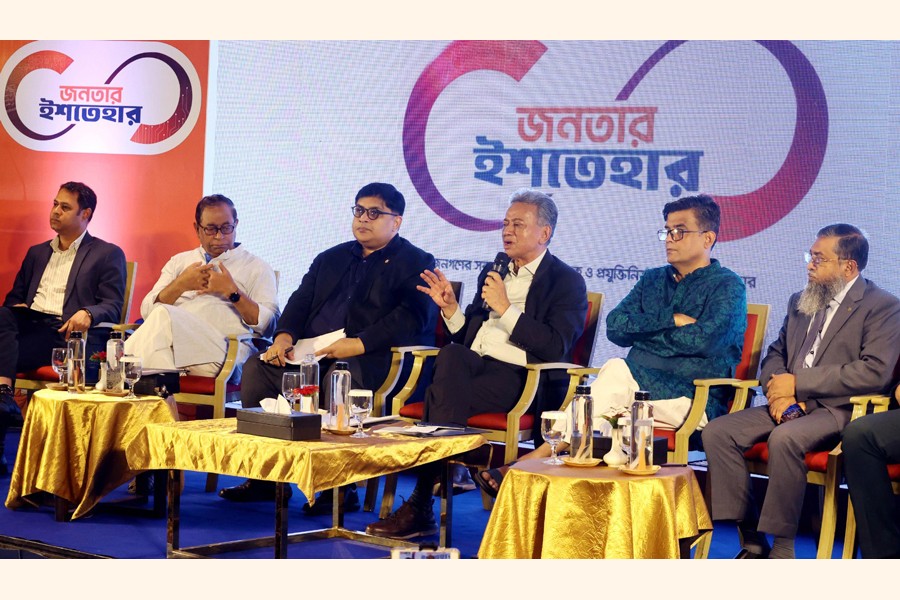
Published :
Updated :

BNP Standing Committee Member Amir Khasru Mahmud Chowdhury said on Saturday that Bangladesh's current Constitution did not allow a national referendum.
"If a referendum is to be held, it can only be done after obtaining the people's mandate, coming to parliament, and passing it there," he commented.
Mr Khasru called upon all political parties to avoid unnecessary confrontation on the streets, saying the people of Bangladesh want peace and stability, not conflict.
Speaking at a seminar titled "The Role of Political Parties in Developing Technology-based Election Manifestos" held at a hotel in the city, Khasru said, "Everyone has the right to protest, but if one group takes to the streets and another responds the same way, clashes will inevitably happen. Is that why we removed Sheikh Hasina-from one confrontation to another?"
The discussion was moderated by Dr Shahab Enam Khan, executive director of the Bangladesh Centre for Indo-Pacific Affairs.
The event was organised by Trace Consultancy and chaired by its CEO Fuad M Khalid Hossain.
Other speakers included Chief Adviser's Press Secretary Shafiqul Alam, Biplobi Workers Party General Secretary Saiful Haque, and DUCSU VP Sadiq Kayem.
Although Khasru did not name any party, his remarks were seen as a response to recent street programmes by Jamaat-e-Islami, which has been demanding a national referendum and other pre-election conditions.
BNP leaders have described such movements as attempts to derail the upcoming national polls.
Khasru, who spoke while sitting beside Jamaat Assistant Secretary General Hamidur Rahman Azad, said that many political actors had become "obsessed" with imposing their own agendas.
"Political parties must respect the consensus already reached. Creating new issues beyond that is a sign of disrespect to that consensus," he said.
He emphasised that after 17 years of Sheikh Hasina's rule, an authoritarian mindset has developed among many political figures.
"Some think that if their own demands or ideas are not accepted, the process itself is invalid. That attitude must change," he said, adding that all political efforts should be built on unity and mutual respect.
He warned that some parties might be trying to delay the election by raising such issues as the national referendum or using incidents like the recent violence in Chattogram.
During the same programme, Amir Khasru unveiled part of BNP's upcoming election manifesto, promising that the party would create 10 million jobs within the first 18 months if it forms the next government.
"The new generation needs opportunities, not slogans," Khasru said. "We already have a detailed plan to create these jobs in various sectors, especially through technology, small enterprises, and export-oriented industries."
He said that instead of focusing only on the manifesto, it was more important to ensure a fair and peaceful voting environment.
"How many people actually read manifestos before voting? What matters most is restoring democracy and the people's right to vote," he said.
Shafiqul Alam urged the political parties to give focus on education, health and other key fundamental issues to enhance the socio economic condition of the people.
tonmoy.wardad@gmail.com


 For all latest news, follow The Financial Express Google News channel.
For all latest news, follow The Financial Express Google News channel.